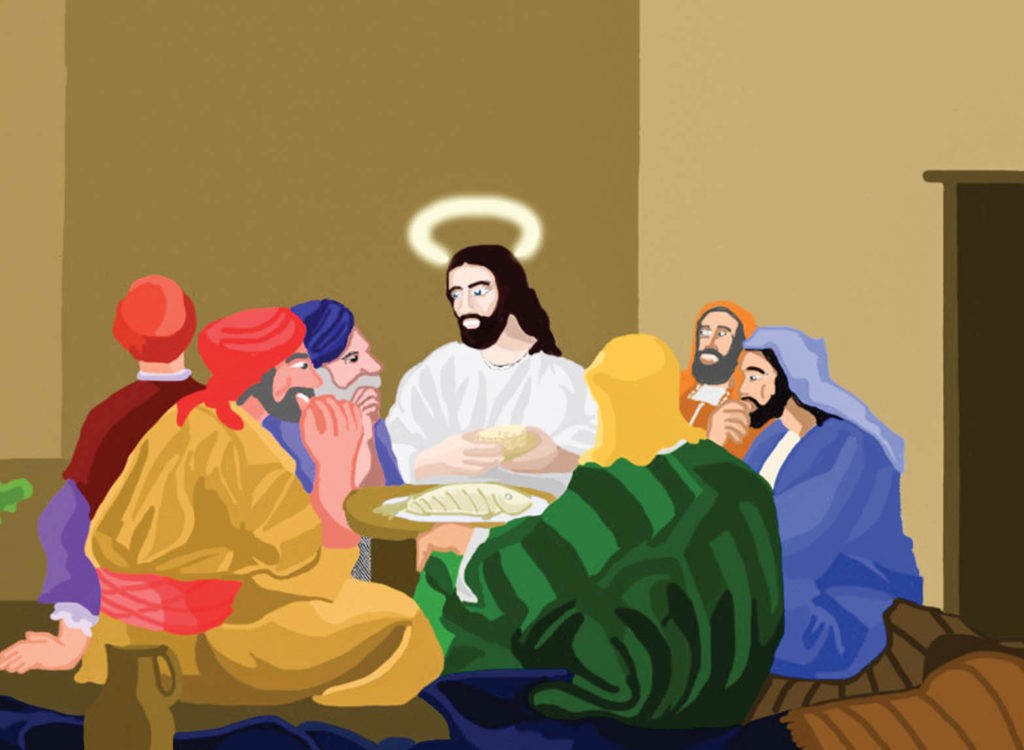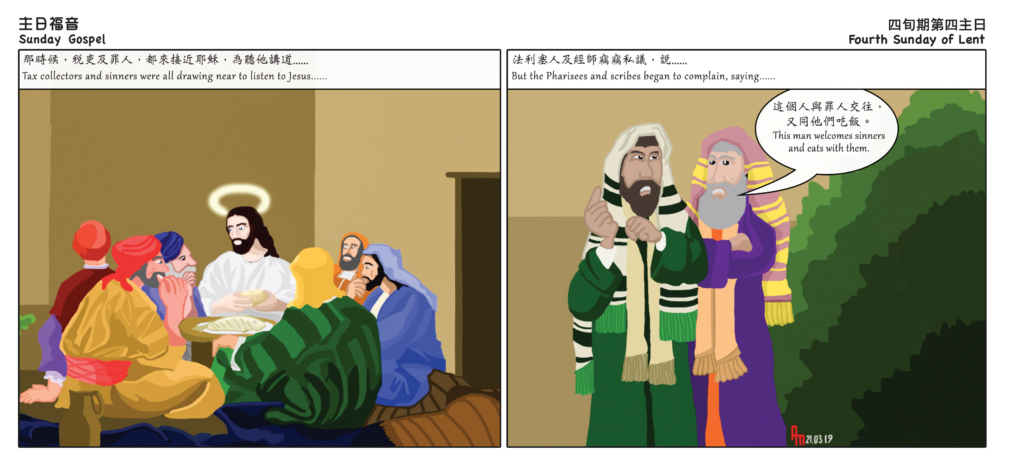Jos 5:9a, 10-12, 2 Cor 5:17-21, Lk 15:1-3, 11-32
– Edmond Lo
Let’s get to the heart of the matter. What’s wrong with the older son’s reaction to his father’s joyous celebration of the younger son’s repentance and homecoming in the prodigal son story? The short answer is: plenty. Suffice to mention one problem – the most devastating one – in this brief Sunday reflection.
The key lies in the son’s reply to his father: “Look, all these years I served you and not once did I disobey your orders; yet you never gave me even a young goat…” (Lk 15:29).
Obedience is good. But we need to obey because we see the goodness in the commands and the joy in doing them. It cannot be a mere submission to something imposed on you – something you don’t really understand, like, or even agree. How do we call the latter mindset? Yes, slavery!
All these years the older son was operating like a slave. Doing his father’s work and following his commands was the son’s way of “serving” his father. He didn’t particularly like, enjoy, or agree with the work. In fact, if he were the boss, he just might run the family in a very different way. But he did it as told out of obligation and obedience. The problem is: whenever we “pay a price”, we expect to get something in return. That’s exactly what happened to the older son, which is why he complained that his father “never gave me even a young goat”.
Why is this part of the prodigal son story important to us Christians? It’s because there are too many “older sons” in the Church; too many Christians see their faith as a slavery. Obeying God’s commands and the Church’s teachings are an “obligation”; going to Mass on Sundays and receiving the Sacraments are “chores” that cannot be avoided; works of mercy hurt but must be done somehow…. Chances are, they will be in denial when asked. But the way they conduct themselves in living out their faith reveals the ethos of a slave in their hearts.
The Exodus story is in many ways the capsule of the whole Bible. Captured in this miraculous historical account is God’s key message to man: that he will be liberated from slavery. Ironically, liberation from slavery is exactly what eludes all these “older sons” of the Church. It’s fair to say that they “work their way into slavery!” What’s the answer to their dilemma? The answer is in the younger son: repent; trust in the father’s mercy, not in your own hard work.
The return of the children
– Fernando Armellini SCJ
Claretian Publications, Macau
One day the younger son of a wealthy landowner comes to his father and asks for his inheritance. He silently divides his wealth between his two sons, in accordance with what the law establishes. This father’s behaviour indicates the respect of God for the choices of man. He exhorts, educates, advises, accompanies, but always leaves freedom also to make mistakes.
Why does the younger son hurriedly decide to leave the family? Probably, he sees in his father a kind of tyrant who imposes his will and does not allow him to do what he wants. Perhaps also because of the judgmental and legalistic elder brother! He ends up among the heathens, breeders of pigs, unclean animals par excellence (Lev 11:7). It is the image of total alienation from God, rejection of all moral principles, the choice of a dissolute and uninhibited life. The rabbis said: “Cursed be the man who rears pigs.”
The experience of disappointment of the younger son is providential. We note that the concern of the younger son is not the pain caused to the father, but hunger. He was craving for the food that his father’s servants ate.
Then, he leaves and implements, in every detail, the project in his prepared speech. Now the father saw him a long way off. He sees him first because he has always been waiting for him. He kissed him. Faced with the reaction of the father, the prodigal son cannot finish his confessions, the father cuts him off and starts to celebrate. The son who only wanted to be a servant is now reinstated to the house as a son. His return is celebrated with a banquet.
On his return from the field the elder son is surprised by the feast, music and dancing. He is neither invited nor notified. He is indignant and his anger is more than justified: it is the logical reaction of the faithful and irreproachable person before an obvious injustice.
The father goes to beg him. The elder son presents his credentials to be treated better. Who among us would his indignation? That was how the scribes and Pharisees of Jesus’ time reasoned and that is how many believers today reason. Theoretically we admit that God is right to do what he wants (Mt 20:15), we recognize that from him we receive everything for free, but basically we continue to think that the righteous are in credit before him, that paradise has to be earned, and that those who do not earn are kicked out.
There are always blameless older brothers who do not understand that the father at home does not want servants but children.



 Follow
Follow


